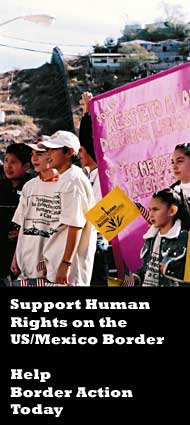Today is Blog Action Day 2008, and the subject is poverty.
Along with conservatives' anti-labor, anti-minimum wage, job outsourcing, and economic policies, wage theft--an all-American pass-time--is a major systemic cause of poverty among American workers. It's so widespread that just by itself, wage theft undermines the national claim that we are a country driven by universal religious values. Nuh-uh: All religions require justice.
If you labor in construction, domestic work, home healthcare, assisted living, landscaping, agriculture, hotel and restaurant food services, certain retail industries, roofing, meat and poultry packing, house painting, and similar industries, it doesn't matter whether the employing firm is large or small. The odds that you'll be cheated of significant earned wages are more than 90 to 1.
At least that's the experience of those of us who volunteer for Interfaith Worker Justice (IWJ). IWJ is a national organization devoted to improving the lives of America's workers--especially our low-income workers. Reports from IWJ's 19 Worker Rights Centers across the country indicate that over 90% of workers who contact IWJ for help report at least one experience of wage theft.
What is wage theft? The short answer: Wage theft is when you aren't paid the correct sum for each and every hour that you're worked.
How does it happen? Here are some of the more common ways. You work as directed but:
You aren't paid at all;
You are paid less than the amount you were promised;
You are forced to work "off the clock";
Work-related travel time is not recorded or compensated when it should be;
You are misclassified as an "independent contractor," thus cheated of benefits, overtime pay, and the employer's share of payroll taxes to which you are lawfully entitled;
You are paid less than the applicable state or federal minimum wage;
Though eligible, you are not paid time-and-a-half for each overtime hour you work;
Your time sheet is altered to record fewer hours than those you've actually worked;
Illegal deductions are withheld from your paycheck (e.g., illegal fees for required safety equipment);
Fraudulent deductions are withheld from your paycheck (e.g., fees for a promise to get a green card for you)
You are misclassified as exempt from overtime requirements; and so on.
Wage theft isn't merely cheating. It's stealing.
It happens to everyone, but most of all to the most vulnerable among us--immigrants who are unaware of their rights, unable to speak English fluently, and easily exploited.
But while wage theft is epidemic among low-wage workers, both native-born and immigrant, anyone who gets paid for labor is subject potentially to wage theft. "
Wage theft hurts middle-income as well as low-wage workers. It robs money from he public treasury, create a strain on he nation's limited social service delivery networks, and takes money out of workers' pockets that would have been spent at local businesses. And it is a grave sin." [Faith Works, Summer 2008)
Wage theft rates have skyrocketed under the Bush administration. Today, there are only 750 Department of Labor (DOL) inspectors for some 135 million workers who are covered by the Fair Labor Standards Act--and that doesn't even count domestic and agricultural workers, who aren't protected. In 1938, when the law was first enacted, there were 14 million workers protected by 1500 DOL inspectors.
Until now, wage theft has been virtually ignored. That's beginning to change, thanks to IWJ. IWJ Executive Director Kim Bobo testified in July before the House Education and Labor Committee on wage theft, which catapulted the issue onto the national screen. Shortly thereafter, an editorial appeared in the New York Times, and other newspapers gradually began to cover it. This November, Bobo's new book on wage the will be published.
So at last the issue is beginning to surface. Our job is to keep it front and center.
What can you do to help?
Fill the White House, the Senate, and the House with DemocratsWage theft doesn't hurt only the workers and their families. Ultimately, wage theft hurts us all. It removes dollars from our local economies, undermines our tax base, forces workers who could otherwise be self-supporting to become dependent on taxpayers; gives an unfair, anti-competitive advantage to unscrupulous employers, and strengthens the same climate of greed and fraud that is responsible for a global market crisis. It's different, sure; but the difference is one of degree, not of kind.
Support Interfaith Worker Justice with a generous contribution
Take advantage of IWJ's extensive online educational resources
Watch Kim Bobo's July 2008 testimony before the House Labor and Commerce Committee, or read the full text of her remarks at the IWJ website
Host a study group on the issue at your faith community; use Bobo's book as your study guide.
Set up a Worker Rights Center, or volunteer for one in your area
Support all pro-union initiatives, including the Employee Free Choice Act now pending. A well-represented workforce is the key to a strong middle class.
Support initiatives to extend wage and hour protections to workers who are not presently covered
Support initiatives to extend paid sick days, healthcare, paid vacations, and retirement benefits to all workers
Support living wage and minimum wage initiatives
Contact the House Energy and Commerce Committee and the Senate Health, Education, Labor, and Pensions Committee to voice your support for vigorous enforcement of wage and hour laws. This is especially effective if your own representative or senator sits on one of these committees.
If you are an employer, do the right thing.



















1 comments:
Thanks for posting this. I had no idea! Once again, you're a red flag for justice!
Post a Comment